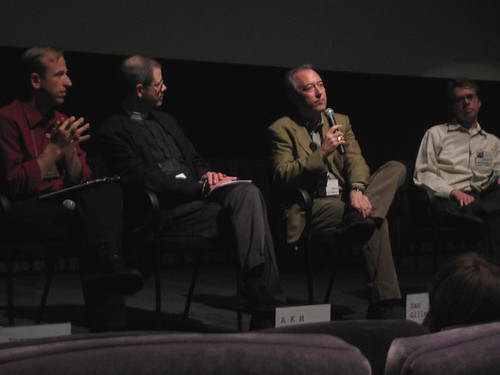Individual Freedom vs. Government Control
Congress faces a critical question this week: Will U.S. health care be government-run, or will Americans be given the freedom to obtain their insurance plans and medical care from private firms? The next U.S. president will likely answer this question, but the resolution to the current debate about SCHIP — the State Children’s Health Insurance Program, a state and federal government partnership for insuring poor children — that is roiling Washington, D.C., will preview the answer.
Although health care is a crucial issue for the electorate; traditionally, presidential candidates have avoided any but the blandest generalities. Health care is the third rail of politics. Its complexity, size, and multiple, committed stakeholders scare away most would-be saviors.
Yet, the underlying debate is simple: It is all about who will manage and control the health-care sector that comprises one-seventh of our economy. Will individual Americans have the freedom to make their own choices? Or, will we trust government bureaucrats, lawyers, and politicians to make those decisions for them? Our future health-care system will be shaped by how we answer these simple questions.
Let’s be clear: The SCHIP battle is not about whether to insure poor children. The debate is about how to insure them: Via the government or private insurers? This debate has not only pitted Democrats against Republicans but has also sundered the Republican coalition. Some Democrats wanted SCHIP expanded by $50 billion dollars so that even families earning about $81,000 a year who have eligible children were included. (The 2005 U.S. median household income was $46,000.) A resolution with the Republicans who hold minority leadership roles led to a compromise, costing only $35 billion, which allowed coverage for those earning up to $60,000.
A fundamental problem with this compromise is that the same amount of coverage for children within SCHIP costs $1,000 more per child than under private insurance. A group of forward-thinking Republicans led by U.S. Senator Richard Burr (R., N.C.) and others has an entirely different idea of how to provide insurance: they want to cash out eligible people and enable them to use this money to buy health insurance from private insurers in a tax-protected way. Count the president in too. He has pledged to veto legislation that permits expansion of the present program.
None of the combatants’ are supported by an unblemished array of evidence. The Democrats support the expansion of SCHIP by lauding the universal coverage and substantially lower costs of single-payer, government-run systems, like the U.K.’s and Canada’s. Yes; but costs are controlled by rationing health care to the sick. More than 20,000 Brits would not have died from cancer in the U.S. Onerous waiting lists have caused illegal, for-profit health-service centers to proliferate in Canada. These rogue establishments are so well-accepted that the head of one became the president of the Canadian Medical Association. Nor do single-payer systems achieve equality of access or health status — the powerful, assertive, litigious, and connected go to the head of the line.
In the U.S., the government-controlled Medicaid program has achieved its low costs per person by stringent limits on provider prices. As many as 40 percent of doctors refuse to see Medicaid enrollees, leading to reduced health care quality. Physicians who accept Medicaid often shift their un-reimbursed costs to the privately insured. A system totally paid by the government would shut down this escape hatch, exacerbating the current shortage of primary care doctors.
But the group of Republicans who support private insurance acknowledge that they cannot laud health insurance as a model industry. The massive bureaucracies patients all-too-often encounter when they attempt to obtain the medical services they paid for are not merely frustrating, they sometimes kill. Free-market Republicans claim that the problem with the U.S. insurance firms arises from their lack of accountability. Agents, such as governments and employers, use our money to buy health plans. The agents’ incentives — simplicity and cost control — are not well aligned with our needs for responsiveness.
Senators Richard Burr (R., N.C.), Bob Corker (R., Tenn.) and others want to refigure the tax code so that we could buy health insurance with tax-sheltered money, a right currently reserved solely for our employers. If we purchased our own health insurance with tax-protected funds, we could keep these arrogant behemoths in check, just as we do in the other sectors of the American economy. The Swiss universal-coverage, consumer-driven system requires people, not employers or governments, to buy health insurance. (The poor primarily receive funds to purchase insurance just like everybody else.) This consumer control enables the Swiss to enjoy an excellent quality of care without the social inequality of single-payer countries at costs that are a third lower than ours.
SCHIP is not merely a debate about yet another mystifying government program. It is all about free-market principles versus government mandates. Giving taxpayers the freedom to choose and buy their own health care would unleash powerful market forces that have been subdued by third-party bureaucracies for the last 60 years. In every area of our economy, market forces have transformed rare, costly products and services like cars and computers into common products and services. We can make health care cheaper, better, and more widely available, if Congress can muster the vision and courage to act.


